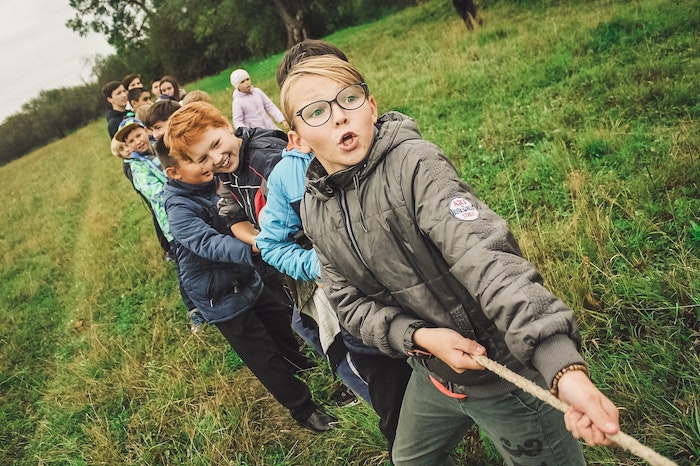
New Research Reveals Increased Need For Unstructured Play
April 24, 2023
A recent study from the internationally peer-reviewed Journal of Pediatrics has found strong evidence of a need for unstructured play - activities that aren't directed by adults or older peers and doesn't have a defined purpose or outcome - to combat rising childhood mental health disorders such as anxiety and depression.
Since the start of the COVID-19 pandemic, mental illness and the demand for psychological services are at all-time highs, especially among children. According to data from the US Centers for Disease Control and Prevention (CDC), in 2020, mental health-related emergency visits increased by 24% for children aged five to 11 and 31% for those aged 12 to 17, as compared with 2019 data.
Recognizing this, the American Academy of Pediatrics, American Academy of Child and Adolescent Psychiatry and the Children’s Hospital Association issued a joint statement to the Biden administration in 2021 declaring a national emergency on child and adolescent mental health. The statement calls for increased existing critical funding streams and support from the administration to help ensure that all children and adolescents can access the full continuum of mental and behavioral health care from promotion and prevention to early identification and treatment, amongst improved access to technology, strengthening of mental health programs in schools and much more.

Among other areas, the "Decline in Independent Activity as a Cause of Decline in Children’s Mental Wellbeing: Summary of the Evidence" study written by Boston College’s Peter Gray, PhD, Utah State University’s David F. Lancy, PhD and Florida Atlantic University’s David F. Bjorklund, PhD, examined children in 20 parks in Durham, North Carolina. After controlling for many variables, the researchers found that children without an adult visibly present were much more likely to engage in vigorous play.
They suggest that the rise in mental health disorders in kids is attributable to a decline in opportunities for children and teens to play and engage in activities independent of any controls by adults. This has led to children losing their sense of autonomy, imagination and independence; attributes that help in navigating complex situations and emotions that factor into mental wellbeing.
"Parents today are regularly subject to messages about the dangers that might befall unsupervised children and the value of high achievement in school," said Bjorklund. "But they hear little of the countervailing messages that if children are to grow up well-adjusted, they need ever-increasing opportunities for independent activity, including self-directed play and meaningful contributions to family and community life, which are signs that they are trusted, responsible and capable. They need to feel they can deal effectively with the real world, not just the world of school."
The researchers note that play is a direct source of children’s happiness and summarize that the large decline over decades in children’s opportunities for independent activity is impacting young people’s mental health and ability to build long-term psychological resilience. They propose ways to improve this through an increase in unstructured play that should be promoted by pediatricians, family doctors and public policymakers.
"When children have little time and encouragement to play, they lose their sense of autonomy. They are not encouraged to think independently, to imagine or dream, or even to navigate the complexities of the world around them. They also have few opportunities to pursue questions of interest to them and to have conversations that evolve from their authentic interests. That is, they don't learn what they care about—and why they care," writes Rebecca Rolland Ed.D. in a March 2023 article for Psychology Today.